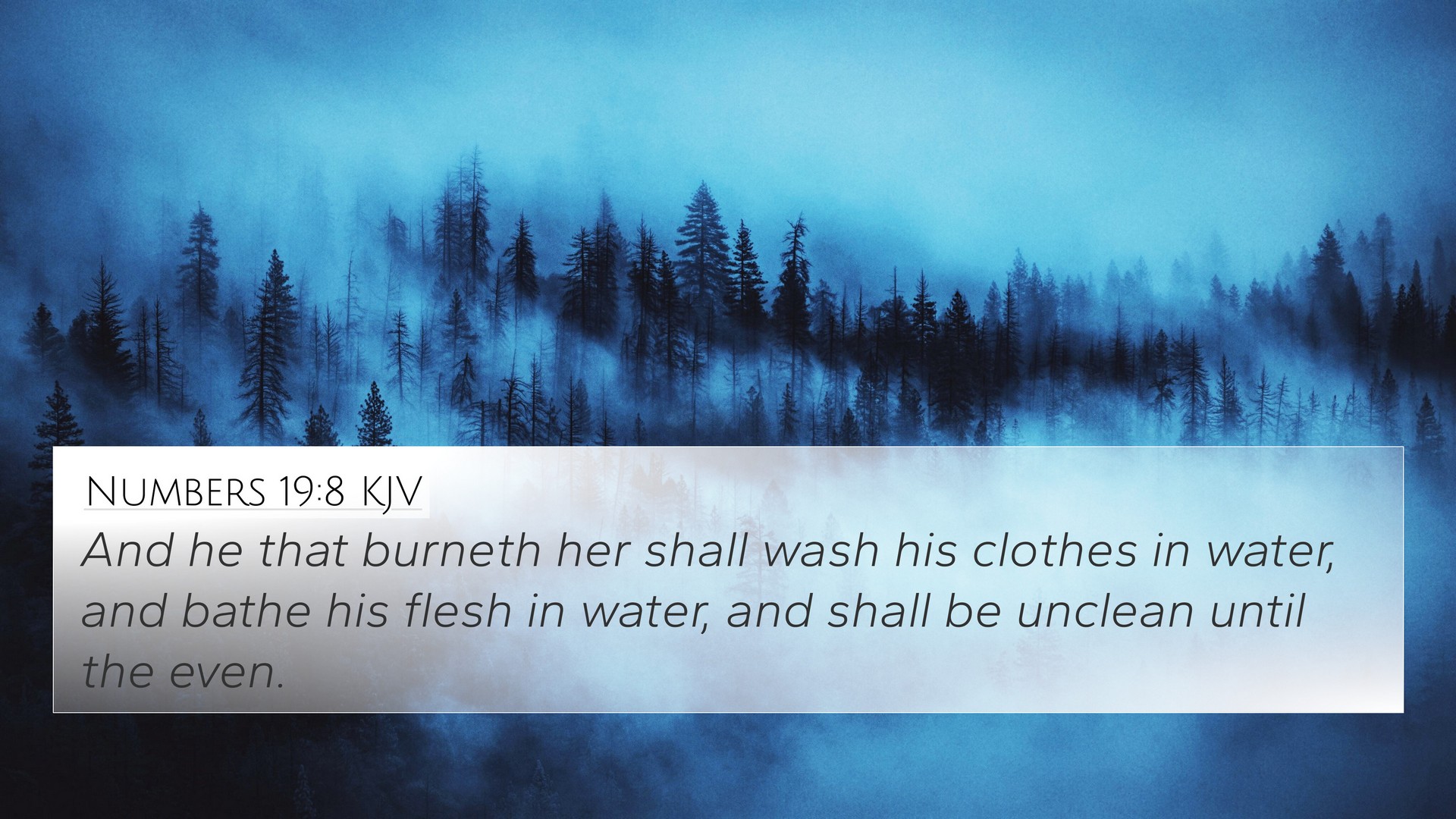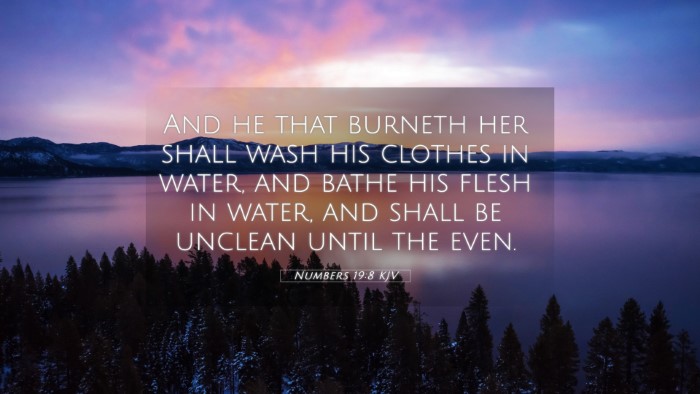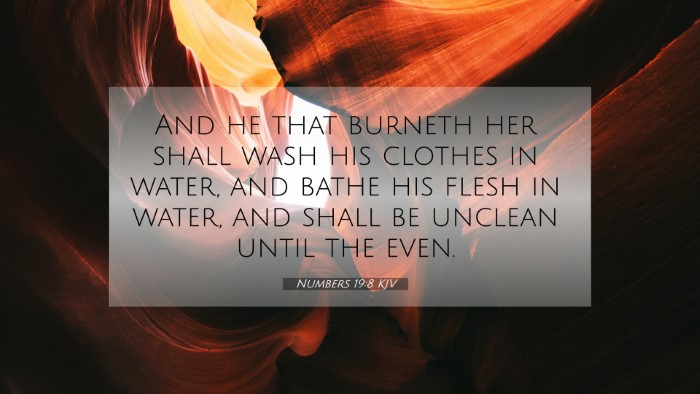Understanding Numbers 19:8
Bible Verse: Numbers 19:8
"And the man that is clean shall gather up the ashes of the heifer, and lay them up without the camp in a clean place, and it shall be kept for the congregation of the children of Israel for a water of separation: it is a purification for sin."
Summary of Meaning
In this verse, the focus is on the ceremonial cleansing process involving the ashes of a red heifer, symbolic in the context of purity and sin offerings. The procedures established in the sacrificial system signify both the seriousness of sin and the provisions made for atonement. Below are insights drawn from notable public domain commentaries:
Matthew Henry's Commentary
Matthew Henry emphasizes that the red heifer serves as a symbol of profound purification. The process of gathering its ashes signifies the notion of being made clean from the defilements of sin. The ashes represent a powerful illustration of how God provides a means for His people to maintain holiness and ritual purity, especially in a community setting.
Albert Barnes' Notes
Albert Barnes notes that this verse is significant in its requirement for cleanliness and the role of the man who gathers the ashes, emphasizing the community's reliance on divine stipulations for maintaining purity. The ashes from the heifer serve a practical purpose, not just in ceremonial aspects, but as an ongoing resource for the Israelites, highlighting God’s consistent provision in moral and spiritual dimensions. Purification rituals are identified as instrumental in the Israelites' worship and relationship with God.
Adam Clarke's Commentary
Adam Clarke points out that the ashes must be preserved in a clean place, reinforcing the sanctity of the purification elements. He elaborates that this ritual foreshadows greater truths regarding Christ's sacrifices and how the biblical theme of purification transcends the Old Covenant, calling attention to its New Testament implications where Christ, as the ultimate sacrifice, provides a complete purification from sin.
Connection to Other Bible Verses
This verse is deeply interconnected with various biblical themes and is critical for understanding the nature of sin and atonement in the biblical narrative. Below are significant cross-references that relate to Numbers 19:8:
- Hebrews 9:13-14: Discusses the blood of bulls and goats and the purification it brings, paralleling the significance of the red heifer's ashes.
- 1 John 1:7: Speaks of the blood of Jesus cleansing us from all sin, echoing the themes of purification found in Numbers 19.
- Leviticus 17:11: Highlights the importance of blood in atonement, underscoring God's requirements for holiness.
- Isaiah 1:18: Invites sinners to come and be made clean, paralleling the ritualistic cleansing that Numbers 19 depicts.
- Romans 6:23: Discusses the wages of sin and the gift of God, reinforcing the need for atonement and purification.
- John 1:29: John the Baptist refers to Jesus as the Lamb of God, highlighting the fulfillment of sacrificial atonement and purification.
- Matthew 5:8: "Blessed are the pure in heart," which reflects the underlying theme of purity and the moral implications of Numbers 19:8.
Thematic Bible Verse Connections
By examining the implications of Numbers 19:8, we can discern key themes tied to purification and the seriousness of sin. The ritual signifies the need for a means of grace to restore and maintain the covenant relationship between God and His people, ultimately leading to a deeper understanding of grace in the New Testament context.
Conclusion
Through the lens of Numbers 19:8, we see a multifaceted approach to understanding sin, atonement, and divine provision for purity that resonates throughout Scripture. The connections established through cross-references enrich the interpretation of this pivotal verse and offer a broader context for personal and communal applications.


